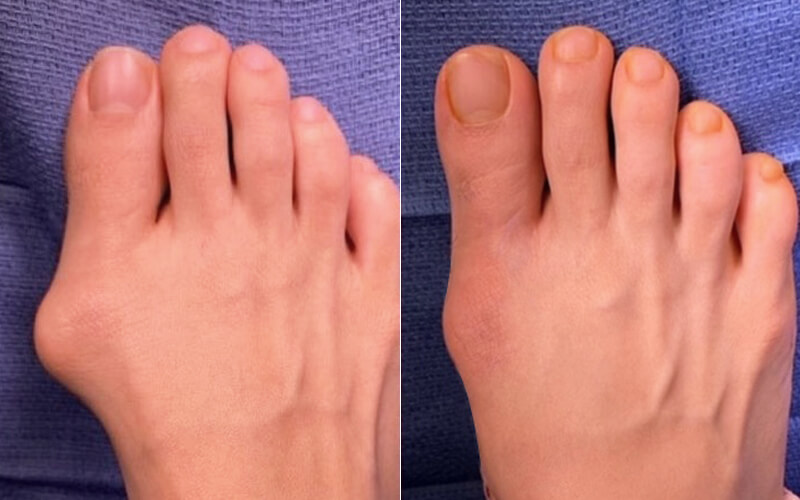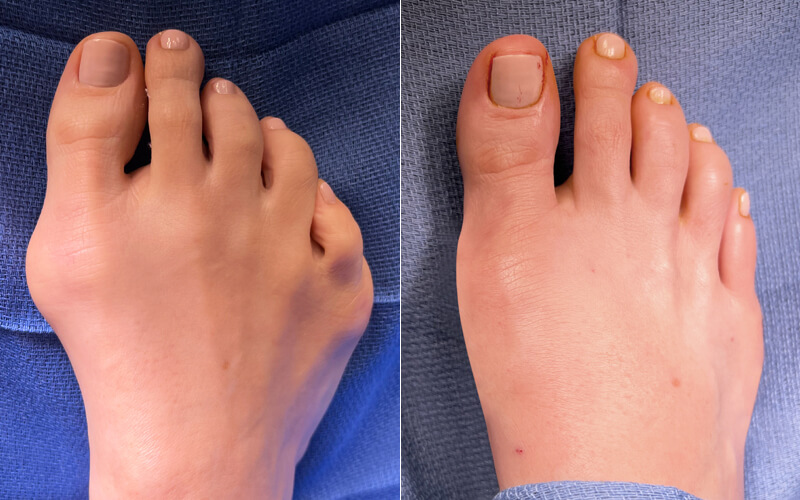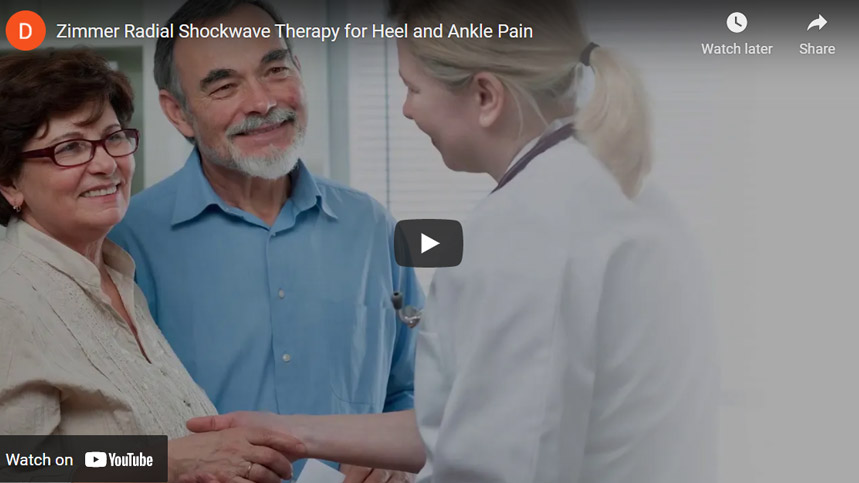Achilles Tendon Pain & Painful Heel Spurs
According to a report published by the American Podiatric Medical Association (APMA), heel pain is one of the most common foot problems reported by Americans. Heel pain affects nearly 2 million Americans each year and can be the cause of debilitating foot pain that keeps people off their feet for extended periods of time without appropriate treatment. The most common cause of pain BEHIND the heel is Achilles tendinitis. Although the Achilles tendon can withstand great stresses from running and jumping, it is vulnerable to ankle tendon injuries.
The Achilles tendon is the largest tendon in the body. It connects your calf muscles to your heel bone and is used when you walk, run, and jump. Achilles tendonitis is inflammation of this tendon that runs behind the ankle and inserts on the back surface of the heel bone. As the pain behind the heel builds, the skin becomes inflamed and swollen. Achilles tendinitis is most commonly experienced by athletes and runners or in people who wear shoes that rub or cut into the back of the heel. A rupture of the tendon is a tearing and separation of the tendon fibers so that the tendon can no longer perform its normal function.
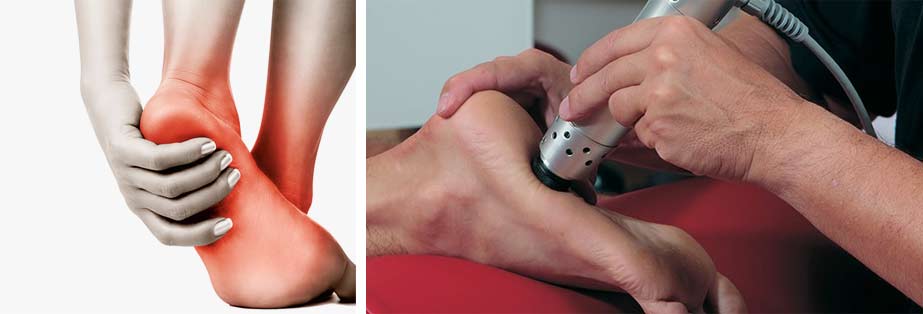
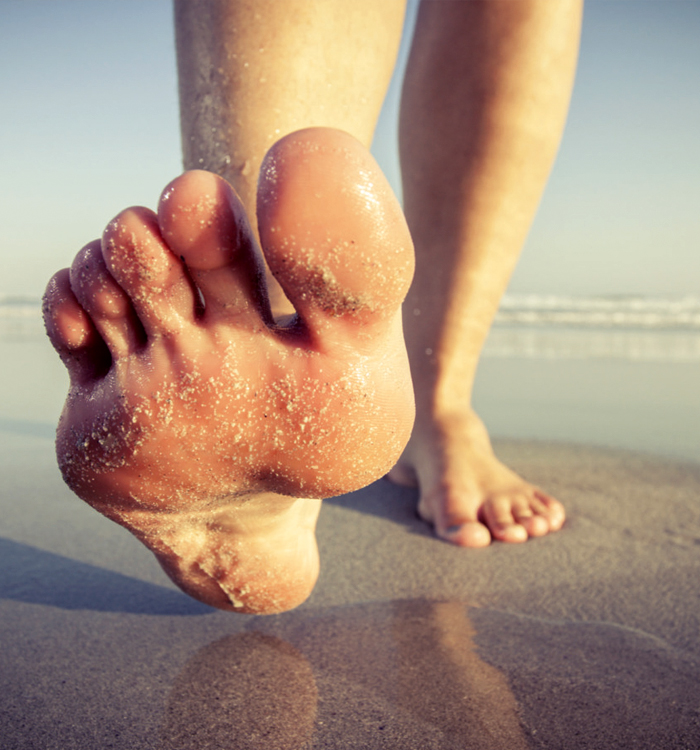
Why People Choose Dr. Jamshidinia:
Dr. Jamshidinia at Tower Foot and Ankle Surgery is a board certified podiatrist trained in all areas of foot and ankle surgery. He is Board Certified by the American Board of Podiatric Surgery.
Symptoms of Achilles Tendinitis:
- Pain and stiffness along the Achilles in the morning
- Pain along the tendon or back of the heel that worsens with activity
- Severe heel pain the day after exercising
- Thickening of the tendon
- Bone spur (insertional tendinitis)
- Swelling that is present all the time and gets worse throughout the day with activity
We Made Them All Happy
Kimberly D. / Los Angeles, CA
Alternative Achilles Tendon Surgery
Anti-inflammatory Medications – NSAIDS like ibuprofen are often prescribed to help manage the pain and inflammation.
Corticosteroids – Steroids are often recommended when patients do not respond to NSAID treatment. They are often most effective when injected directly into the inflamed and swollen area.
Physical Therapy – Physiotherapy is a great way to stretch and strengthen the Achilles tendon. A good physical therapist will also teach the patient techniques which give better foot support during exercise (taping, wrapping, etc…).
Custom Orthotics – assistive devices and insoles can be used to cushion and cradle the arch of the foot during the healing process.
Shock Wave Therapy – This is the newest form of treatment and uses concentrated sound waves to stimulate healing in the affected area. This form of treatment is reserved for heel pain that is unresponsive to other forms of treatment.
What to Expect:
Achilles tendon surgery can be done to remove the hardened fibrous tissue and repair any small tendon tears as a result of repetitive use injuries. This approach can also be used to help prevent an Achilles tendon rupture. If your Achilles tendon has already ruptured or torn, Achilles tendon surgery can be used to reattach the ends of the torn tendon. This approach is more thorough and definitive compared to non-surgical treatment options discussed above. Achilles tendon surgery also minimizes the change of re-rupturing the Achilles tendon.

Outlook Following Achilles Tendon Surgery with Dr. Jamshidinia in Los Angeles:
Most patients report excellent results following Achilles tendon surgery. Results are considered to be better if your procedure is performed soon after the rupture occurred. Complete recovery from Achilles tendon surgery may take months, requiring a period of rest and limited movement followed by a thorough physical rehabilitation program to help heal and strengthen the repaired tendon. Although most patients recover within 4-6 months, some patients require up to 12 months of rehabilitation before they completely regain full strength and range of motion. The main factor in surgical recovery is the amount of damage to the tendon. The greater the amount of tendon involved, the longer the recovery period and the less likely a patient will be able to return to sports activity.


